
Time tool Medical technology, Sports medicine, Healthcare professionals
Wound bed preparation in acute, subacute and chronic wounds. There are diverse wound patterns in acute wounds, ranging from post-traumatic abrasions, lacerations and burns to high-energy-explosive wounds. In acute wounds, the normal healing process has not been impaired and healing is ensured if the wound conditions are not compromised.
Appropriate wound treatment with T.I.M.E. concept
The TIME mnemonic for wound bed preparation assists clinicians and bedside nurses to think critically when making decisions on treatment options. During the image-driven presentation, I discussed such topics as: Use of the TIME mnemonic to evaluate various wound challenges A review of terms related to the TIME wound bed preparation model

Table 4 from Hydroresponsive wound dressings simplify T.I.M.E. wound management framework
7 November 2017. Effective wound bed preparation is the cornerstone of wound healing and management. Building on the TIME acronym to include 'S' for surrounding skin, this Quick Guide outlines what to look out for at every stage in the TIMES continuum and at the key actions that need to be considered across all wounds at every stage.

Time Model Wond The general method for developing and choosing timeseries models Beau Niedid
TIMES MODEL of wound bed preparation Wounds UK Supported by Activa, L&R www.activahealthcare.co.uk THE TIMES TABLE: REMOVING THE BARRIERS TO WOUND HEALING Tissue, non-viable or deficient The overall appearance of the wound bed indicates the 'health' of the tissue within the wound bed.

Wondprotocol voor in de complexe Van Heek Medical Educatiehuis
The principles of wound bed preparation in the management of chronic wounds are described using the Tissue, Infection, Moisture, Edge (TIME) framework. TIME offers a systematic approach to wound healing, which involves eliminating non-viable tissue, controlling infection, restoring moisture balance and promoting epithelial advancement.

Time / TIME klinische beslishulp Smith+Nephew Nederland Smith Velthuizen Berne1953
Evolving the T.I.M.E. concept The T.I.M.E. concept began in 2003 with a group of wound management experts who sought a rational, systematic approach to guide wound bed preparation and address non-healing wounds by identifying and removing barriers to healing.
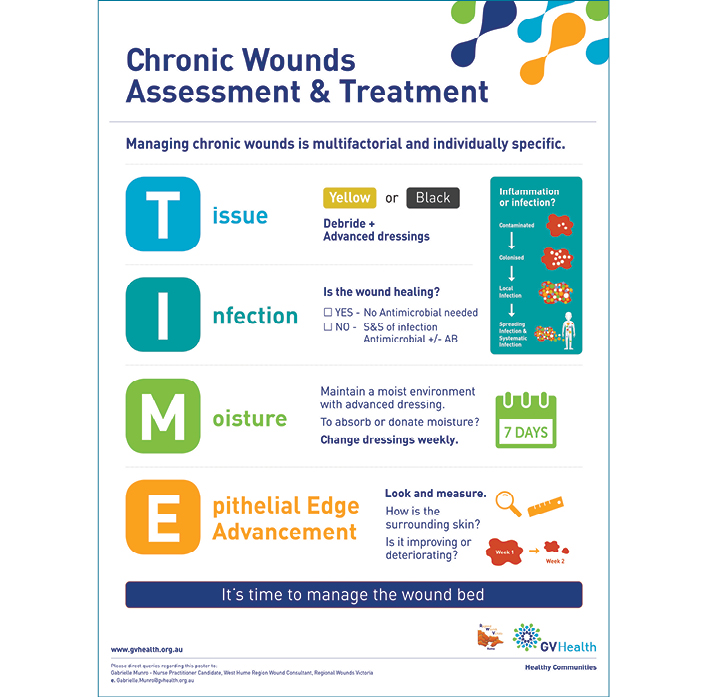
Causes and consideration with chronic wounds a narrative review of the evidence Cambridge
TIME is a global wound care framework used to implement appropriate care plans and promote wound healing. The TIME framework can be used to apply wound bed preparation to practice. The correct implementation of TIME depends on patient and wound assessment.
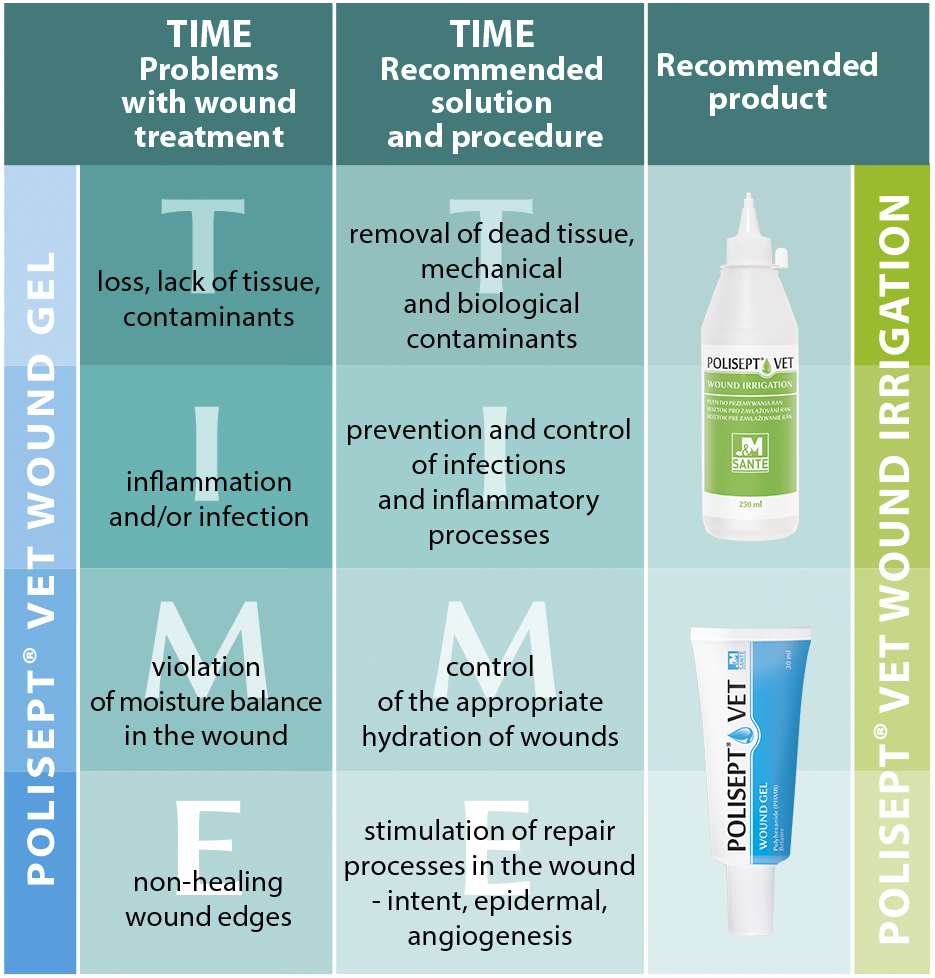
Polisept® Vet wound gel » Polisept
Het is een hulpmiddel om moeilijke en complexe wonden te beoordelen. Het uiteindelijke doel is om een gezonde wond te creëren, zonder dood weefsel en ziekteverwekkende bacteriën, met weinig wondvocht en een goede doorbloeding. Pas als dat is bereikt, kan een wond genezen.

Time model
The T.I.M.E. framework has been developed as a practical tool to assist practitioners when assessing and managing patients with wounds. Implementing the framework in general practice supports consistent approaches to wound assessment and documentation. T.I.M.E. stands for: T issue management I nfection or inflammation M oisture imbalance E dge Goal
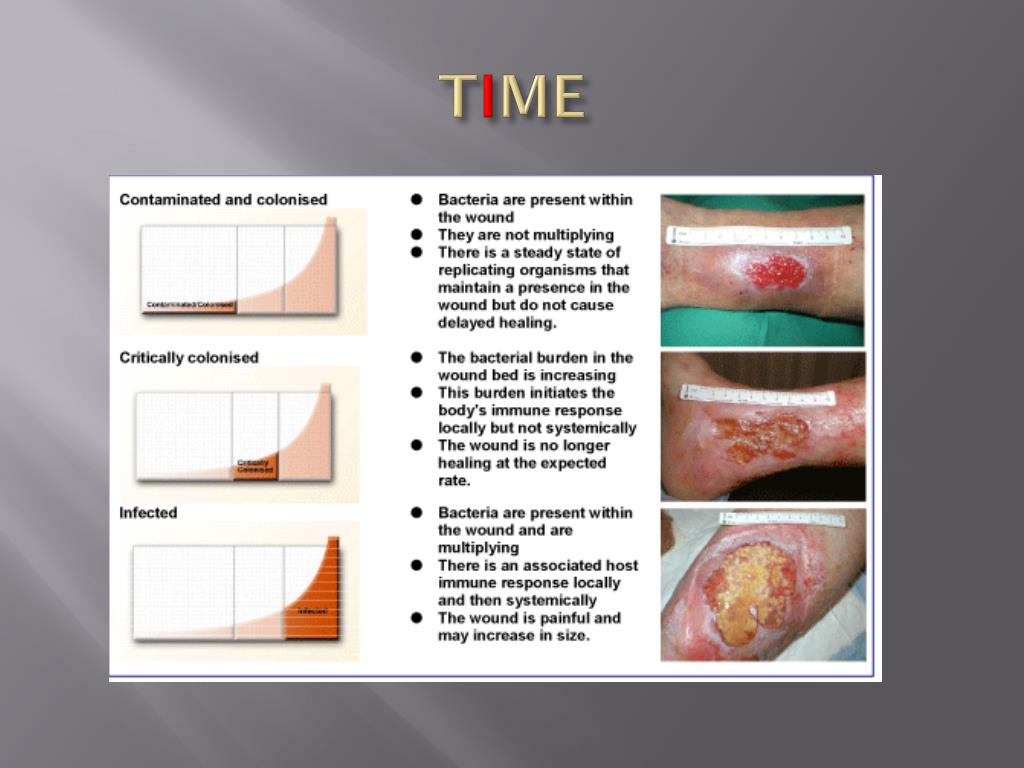
PPT Wound management using ‘TIME’ PowerPoint Presentation, free download ID6001685
The Principles of TIME To facilitate wound bed preparation, a group of wound care experts developed the mnemonic TIME. The concept was created in 2002 and since then has been providing wound care clinicians with the tools needed to promote wound bed preparation in a simpler way. Following is explanation of the TIME framework: T - (tissue)

T I M E classificatiemodel
The T.I.M.E.S. approach UCS® Debridement and T.I.M.E.S. To assist with appropriate management of wounds and facilitate wound healing a group of wound care experts in 2002 developed a systematic approach to wound bed preparation in a simple easy to use framework using the TIME acronym.

Dermatochirurgie healing by secondary intention
Wondbehandeling. Subpagina's uitklappen Actueel. Subpagina's uitklappen Thema's. Bij het bewandelen van een wond doorloop je verschillende fases, waarin je samenwerkt met arts, verpleegkundige, mantelzorger en cliënt.
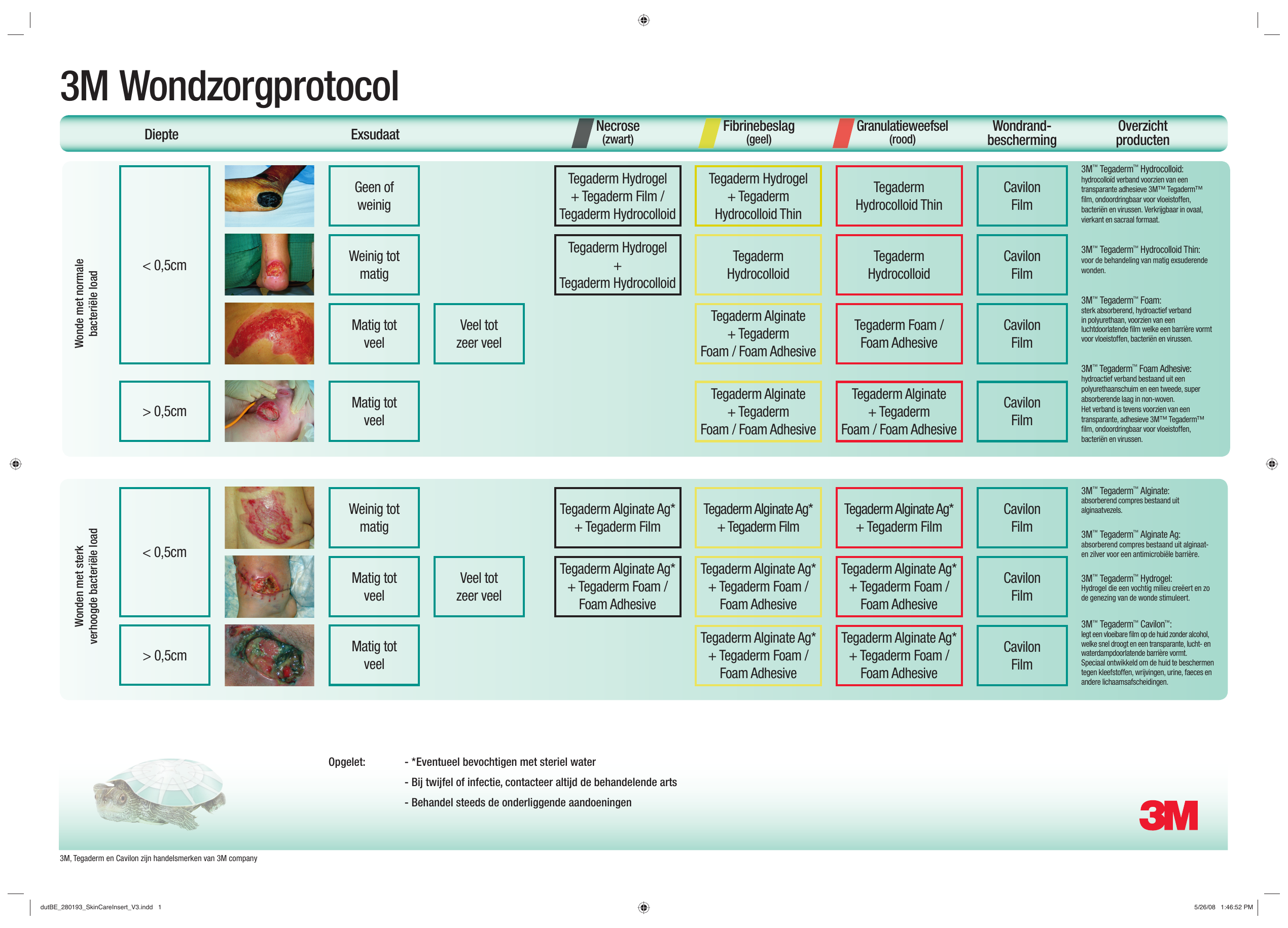
3M
This involves the assessment and management of non-advancing or undermining wound edges and the condition of the surrounding skin. It is imperative that the TIME concept be considered part of a comprehensive approach to each patient.
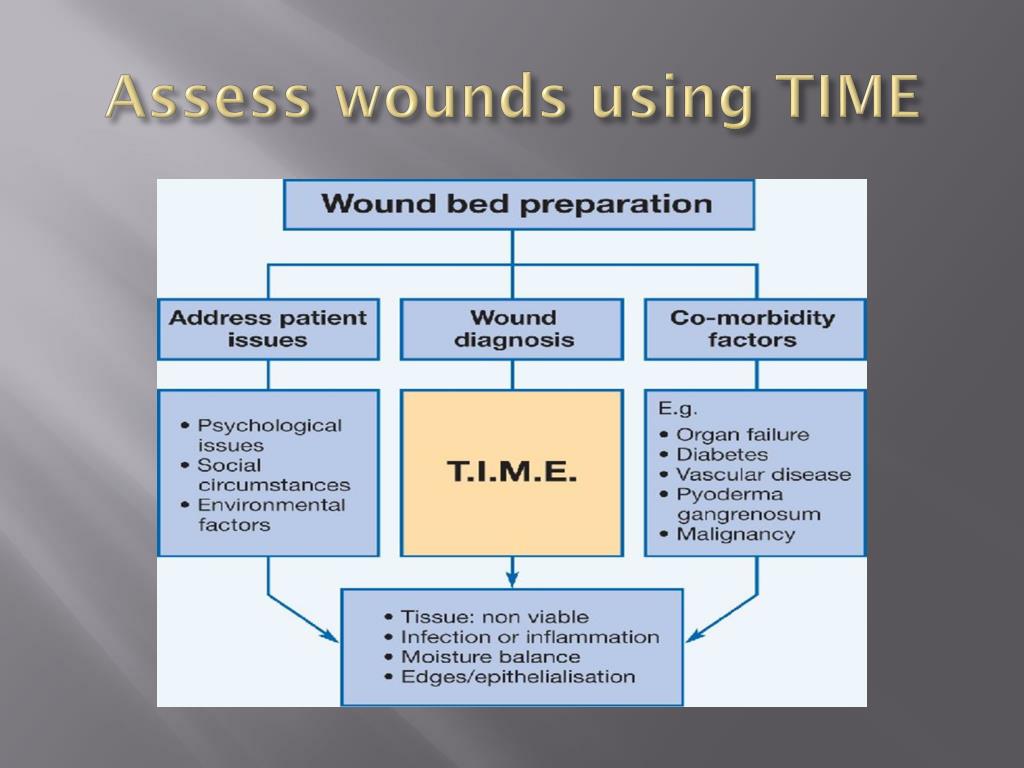
PPT Wound assessment using TIME 2013 PowerPoint Presentation, free download ID5618182
The principles of wound bed preparation in the management of chronic wounds are described using the Tissue, Infection, Moisture, Edge (TIME) framework. TIME offers a systematic approach to wound healing, which involves eliminating non-viable tissue, controlling infection, restoring moisture balance and promoting epithelial advancement.

Een complexe wond beoordelen doe je zo! Van Heek Medical
By definition wound bed preparation is 'the management of a wound in order to accelerate endogenous healing or to facilitate the effectiveness of other therapeutic measures' (Falanga, 2000; Schultz et al, 2003). The concept focuses the clinician on optimising conditions at the wound bed so as to encourage normal endogenous healing.

Time Presentatie Wonden Rapporteren Met Het Time Model Youtube de Oude Glas1959
10.12968/bjcn.2008.13.Sup3.29468 This article discusses the concept of wound bed preparation and the associated TIME framework, as a systematic approach to wound assessment.